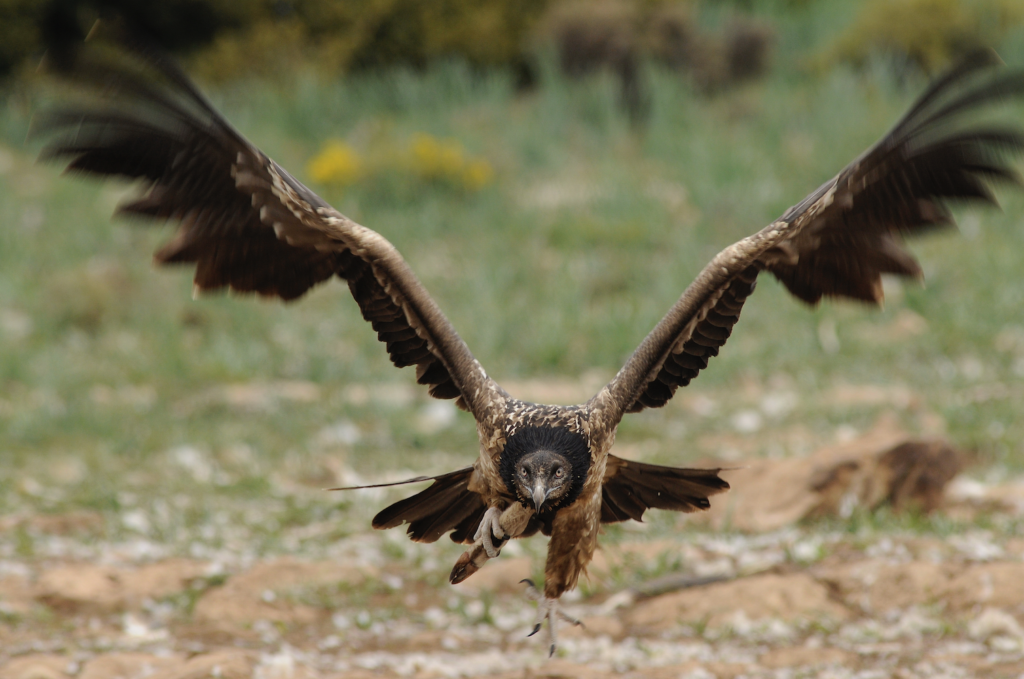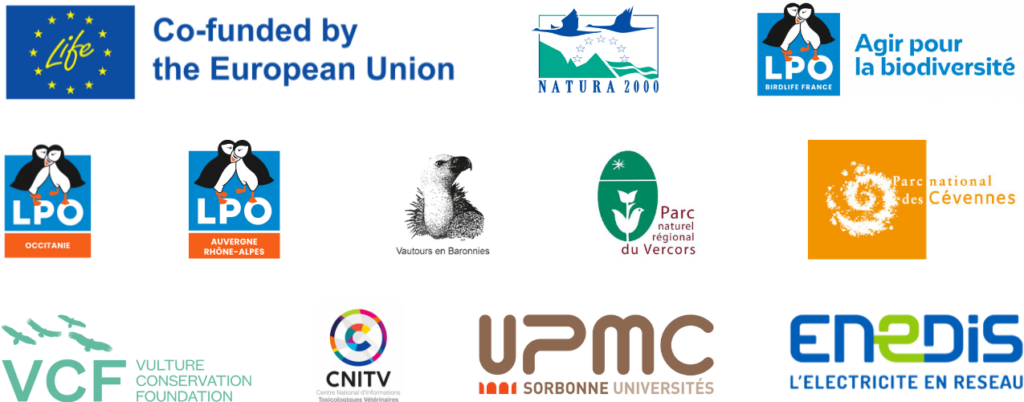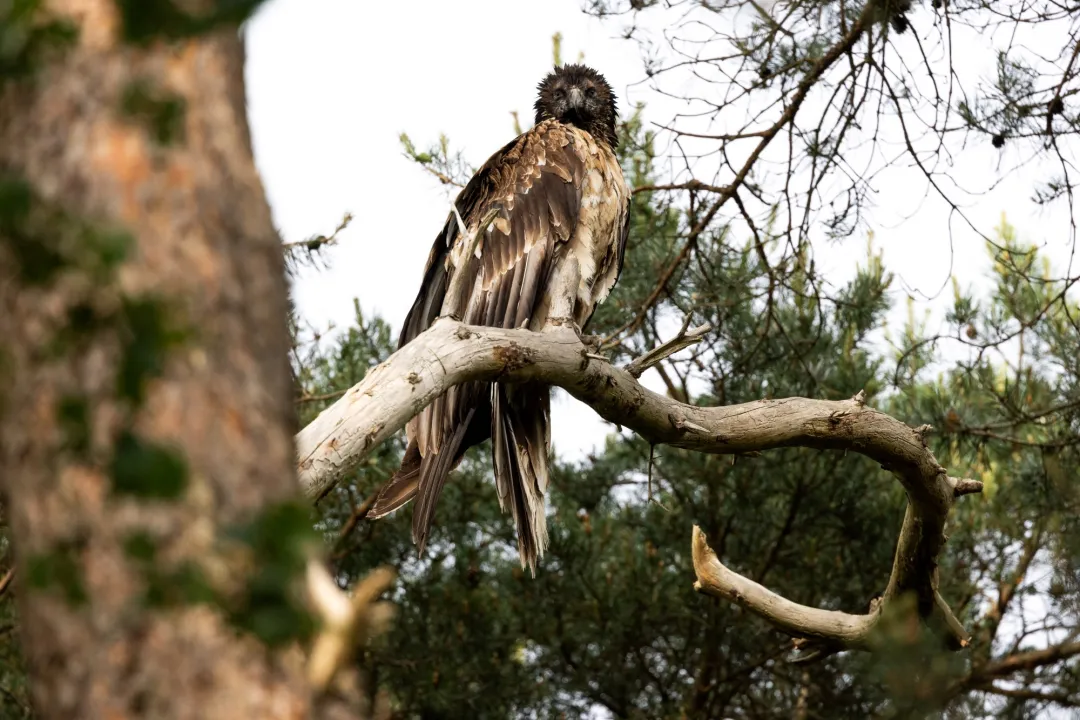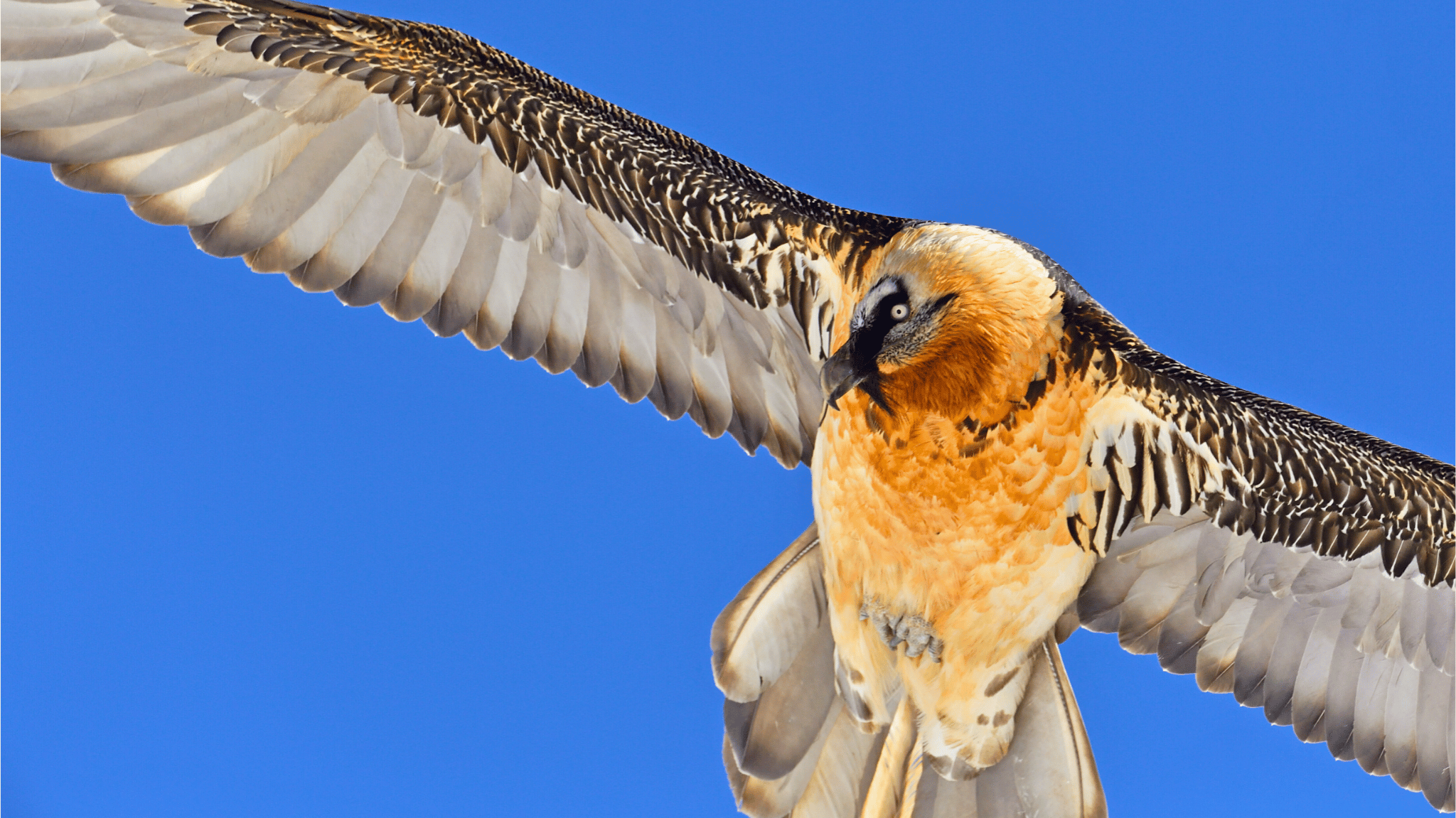
The LIFE Gyp’Act conservation project aims to consolidate the Bearded Vulture (Gypaetus barbatus) population in South-eastern France, ensuring the connection between the Pyrenean and Alpine populations. The project builds on the encouraging results of LIFE GypConnect, implemented between 2015-2022, whose actions contributed to the establishment of 6 new Bearded Vulture pairs across the French Pre-Alps and the Massif Central. The LIFE Gyp’Act project will ensure that key actors in the territory take ownership of the Bearded Vulture’s conservation objectives, in a collective effort that will last until November 2028.
Connecting the Alps and the Pyrenean populations
Once found across the mountains of southern Europe, the Bearded Vulture disappeared from much of its range due to changes in farming practices, the decrease of wild herbivores and human persecution. Nowadays, thanks to conservation efforts endured over the last decades, the European population is thriving with an estimated population of 580-790 pairs, distributed between the Pyrenees, reintroduced populations in the Alps and the mountains of Andalucia in Spain, and isolated populations in Crete and Corsica.
In France, it is considered an endangered species, with an estimated 70 pairs, but the population is on the rise. Thanks to the LIFE GypConnect project and the efforts of many partners and organisations involved, the aim of establishing a new population in South-Eastern France to connect the Alps and the Pyrenean populations, was achieved. Within the project, 46 Bearded Vultures were reintroduced, some of the threats that the population faced were tackled, and food availability was improved. This led to an amazing outcome, as new 6 pairs were established: in the Grands Causses (1), in Vercors (2) and in Eastern Pyrenees (3). Also, in 2022, a new record of Bearded Vulture fledglings and breeding productivity was achieved in France.
The LIFE Gyp’Act builds on the legacy of the LIFE GypConnect and ensures the continuity of the conservation measures implemented so that Bearded Vultures continue to flourish in this territory.
Reintroducing and monitoring Bearded Vultures

The decades of experience in captive breeding and releases into the wild, and the long-established partnerships in the region, will be fundamental to achieving one of the main actions of the project: the reintroduction of 60 Bearded Vultures to the release sites in Parc national des Cévennes, Parc naturel régional des Grands Causses, Parc naturel régional des Baronnies provençales and Parc Naturel Régional du Vercors.
Captive breeding programmes play an essential role in reintroduction efforts because young vultures, in contrast to adult birds, perfectly adapt to a new environment. We will be using the ‘hacking method’, which entails placing young birds in an artificial nest in suitable habitat to acclimatise to the natural environment before they take their first flights. Before their release into the wild, birds are equipped with lightweight GPS transmitters, that enable us to track their movements in real-time. The data provided by the devices are a valuable insight into any threats they might encounter and enables a deep analysis of the dispersion range of the released birds.
Tackling threats and improving food availability
Reintroduction efforts can only be successful if the main threats the species face are mitigated. Conservation measures and information campaigns will be implemented in nearly 30 Special Bird Areas (SPA) across South-eastern France and the Pre-Alps. Working with local government agencies and other organisations, our partners will:
- Insulate and secure 20 km of power lines to prevent deaths from electrocution in the most sensitive areas for the population, which have already been identified within the LIFE GypConnect project
- Implement actions to increase knowledge and information about collisions with wind turbines in wind farms
- Work with local hunters to promote the use of lead-free ammunition and thus, reduce the risk of poisoning;
- Mobilise an anti-poison dog unit
- Direct awareness-raising campaigns among farmers to prevent the use of illegal poison baits, that can directly or indirectly intoxicate Bearded Vultures and many other species
To encourage the movements of Bearded Vultures between the Alps and the Pyrenees and ensure food availability for the newly settled population, our project partners will maintain 20 feeding stations, providing food from local abattoirs and butchers.

The LIFE Gyp’Act partnership

LIFE Gyp’Act is a 13M€ project, co-funded by the EU’s LIFE programme, that will run until 30 November 2028. Project partners are LPO – Ligue pour la Protection des Oiseaux as coordinator beneficiary, and the Vulture Conservation Foundation, Association Vautours en Baronnies, LPO Auvergne-Rhone-Alpes, LPO Occitanie, Sorbonne Université, ENEDIS, Centre National d’Informations Toxicologiques Vétérinaires, Parc National des Cévennes and Parc Naturel Régional du Vercors as associated beneficiaries.




